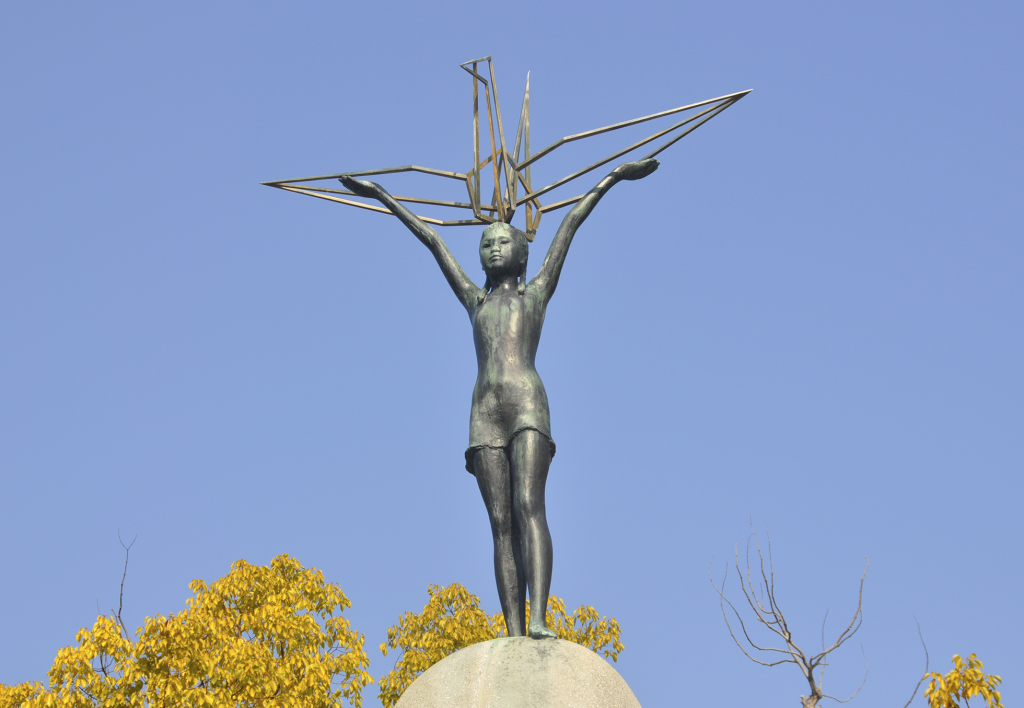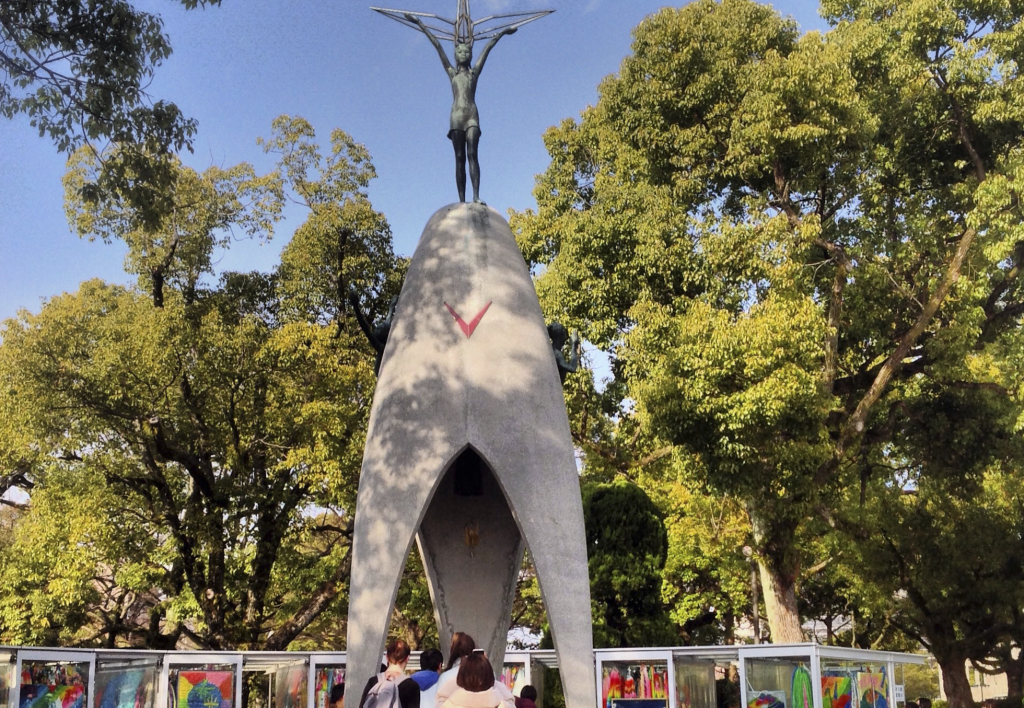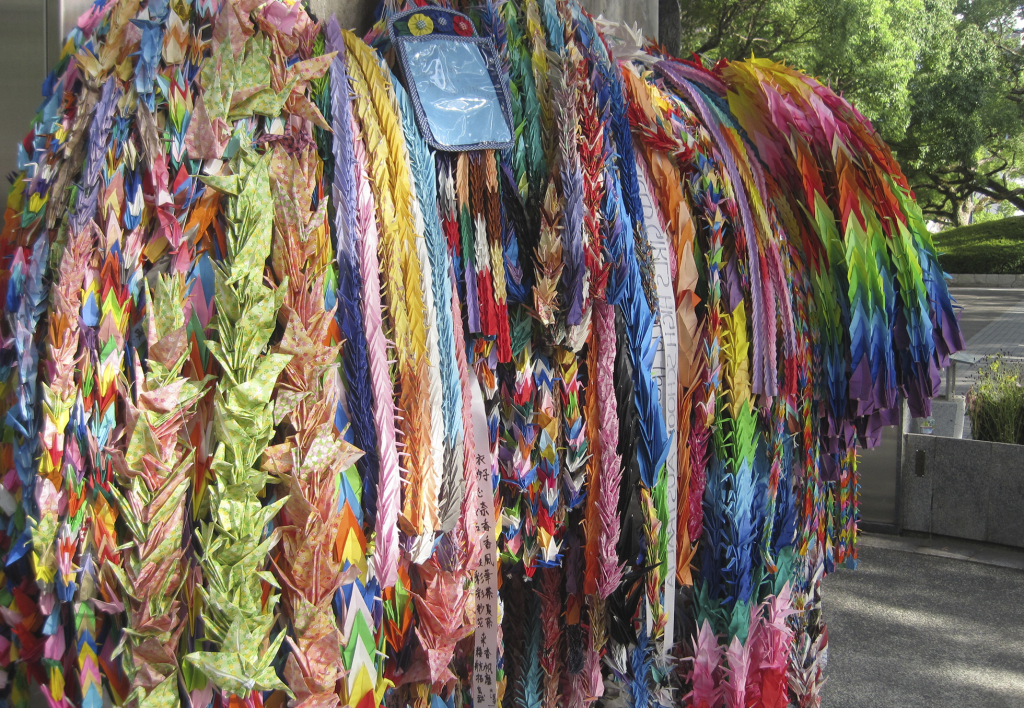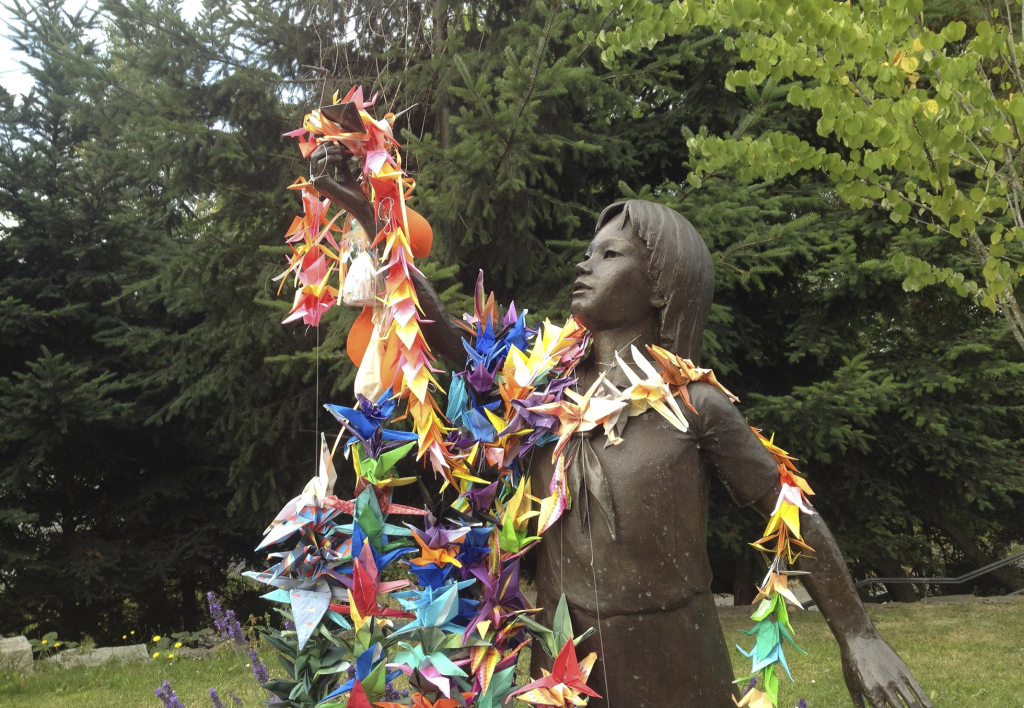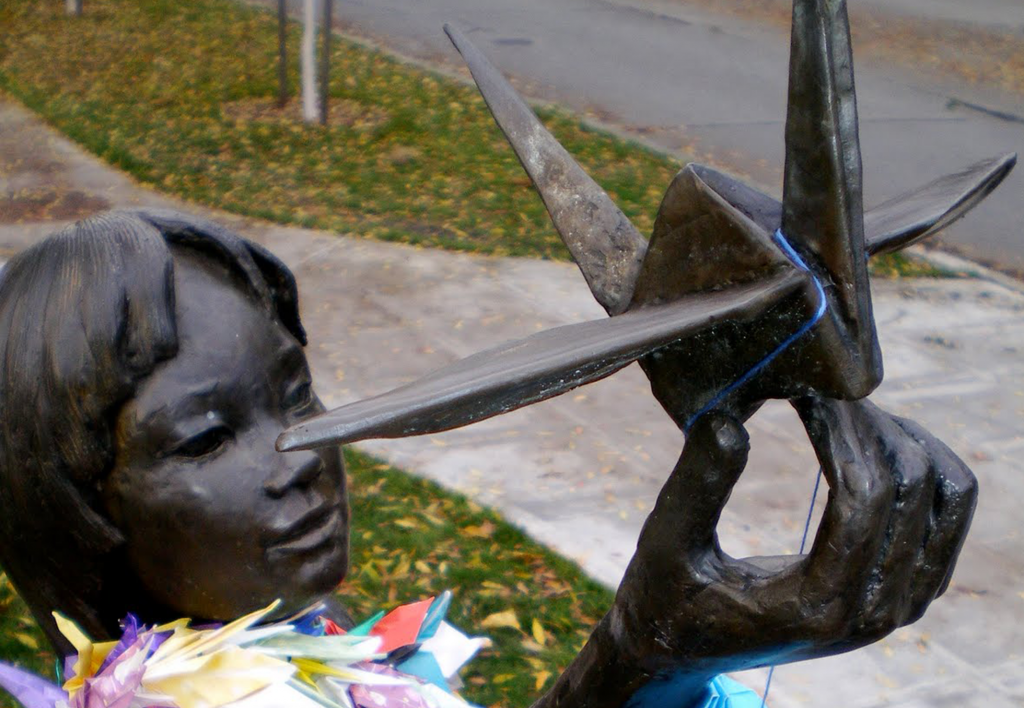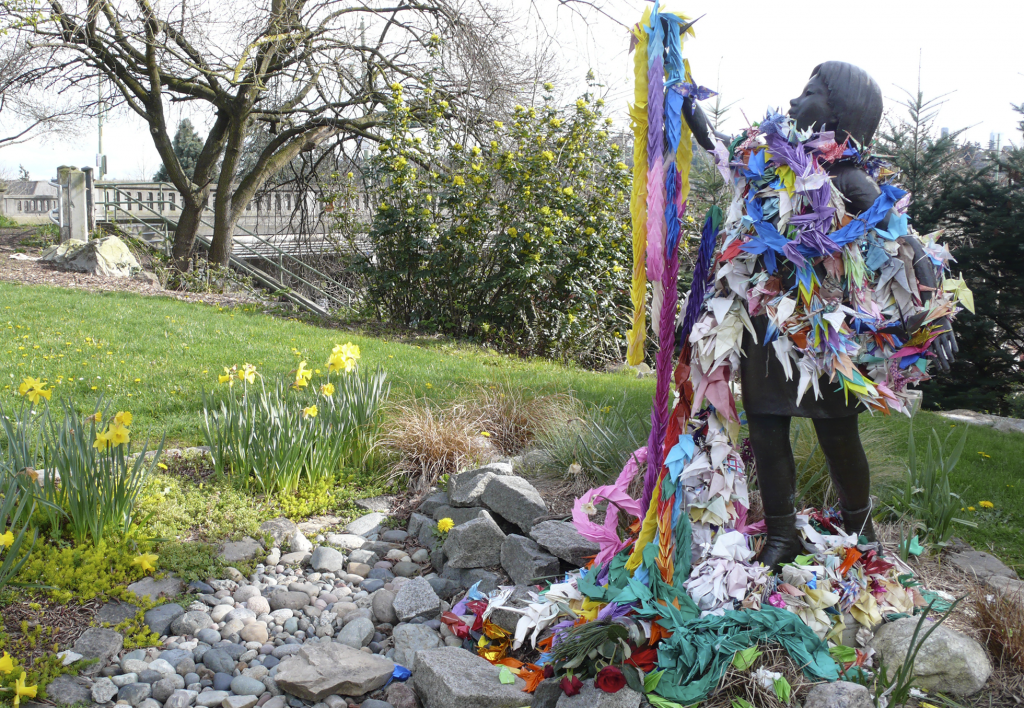Sadako Sasaki
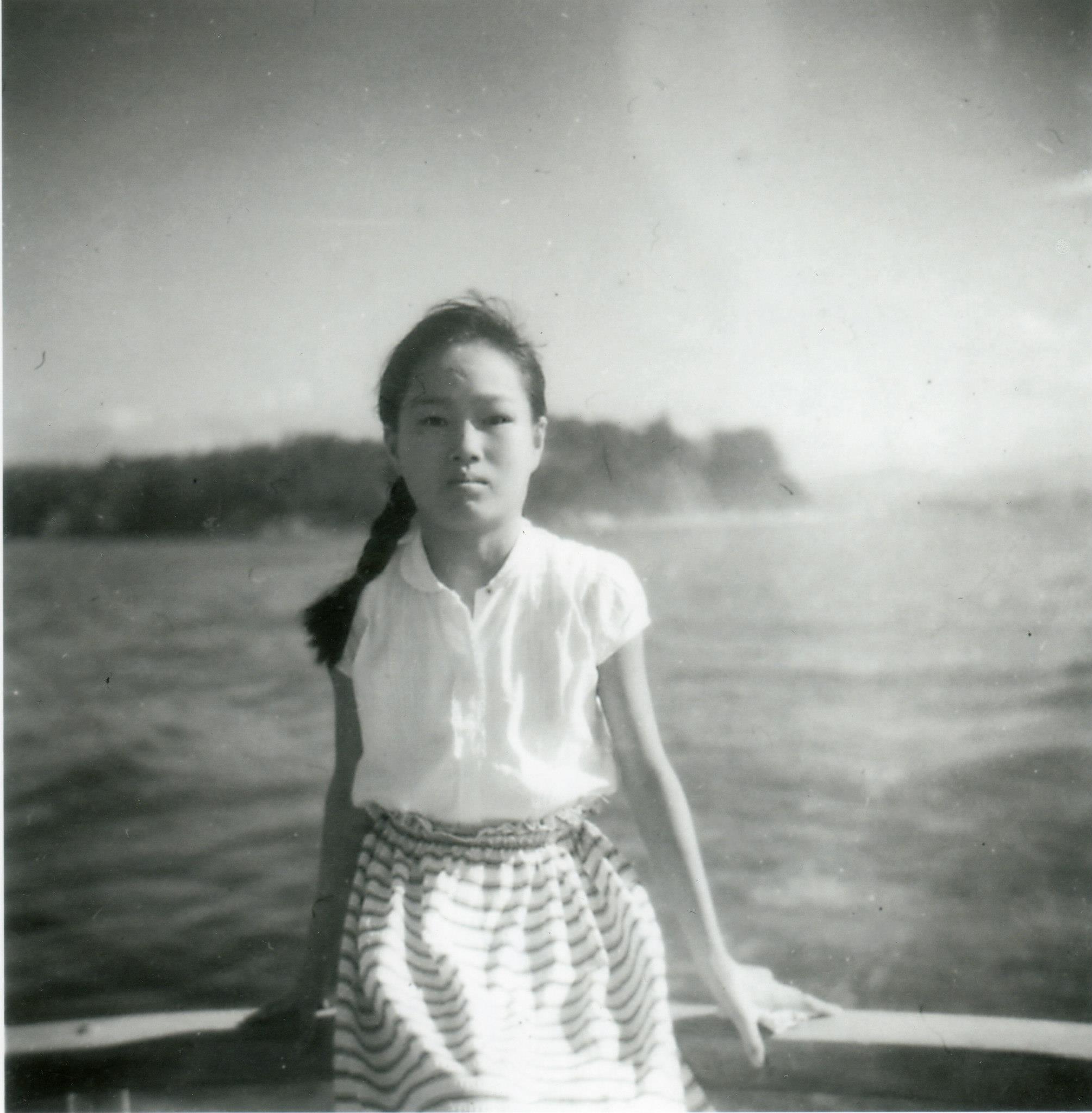
Sadako Sasaki was a Japanese girl who lived in Hiroshima. In August 1945, when she was only two years old, the atomic bomb was dropped about one mile away from her home. She and her family managed to escape, although her grandmother ran to get something from their house that she had forgotten, but by that time, no one saw her again. Sadako had a pleasant childhood in fact she was very good in the running races and she was very proud of her running ability. Unfortunately, at the age of 11, during a race at her school she became ill.
When she was 12 years old, her illness worsened in fact she was diagnosed with leukemia, a cancer that has affected many children who had been exposed to radiations due to the atomic bomb. Her family was told that she would have survived for less than a year and therefore, she was transferred to the hospital. A friend told her about an old Japanese legend which says that if you fold 1000 origami cranes, you will be granted a wish.
She had not always origami paper, so she used what she could find to make origami. People say that she was able to bend over 1000 cranes before she died, but others say that she has succeeded in breaking a little more than 600. We don’t know the truth, but we know that unfortunately Sadako failed to beat cancer. In October 1955, Sadako died in the hospital.
After the death of Sadako, her classmates decided to raise money to build a monument for Sadako and all the other children who had died because of the atomic bomb. It took three years to collect all the money for the construction of the Children’s Monument in Peace Memorial Park. On top of the monument there is a statue of Sadako and origami cranes. In the lower part there is a plaque with a message that says children:
“This is our cry. This is our prayer. Peace in the world.”

Today:
Children’s Peace Monument was officially inaugurated on 5th May 1958, and since that day, every year, thousands of children leave their origami cranes near the monument in memory of the children who had died because of the war.

